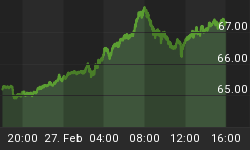Equity markets are expected to open flat to lower based on overnight action. Although there was not a hard sell-off, stock equity futures were not able to trade above yesterday's highs following a mostly sideways trading day.
Monday's bullish New Home Sales Report was enough to drive equity markets higher but traders were reluctant to trigger a strong breakout to the upside. The sell-off on bullish news is a sign that the equity rally may be running out of steam as investors approach the markets more cautiously at current levels.
Weakness in Europe and Asia appears to be setting off the selling pressure in the U.S. markets. While better than expected U.S. corporate earnings have been the catalyst of the recent two week surge in equity prices, Europe is just beginning its earning season. Traders will be watching overseas corporate earnings for clues as to whether the European companies are weathering the current global recession as well as their U.S. counterparts.
U.S. investors will be waiting for confirming data from Europe over the near-term as there is still a lot of money on the sidelines. U.S. money managers are beginning to wonder how high equity markets have to go in order to lure investors back into the market. Over the past two weeks, traders have witnessed the power of new money coming into the market. This fresh money came from aggressive portfolio managers who get paid to try to beat the market.
If this market is going to move higher and continue to regain the huge loss from last year, then the more casual investor is going to have to get involved. At this time many U.S. individual investors remain on the sidelines because of the lack of trust in the market, the fear of loss and uncertainty about an economic recovery. Many face the potential for job losses and would rather save their money to make their house payments.
The question being asked by some investors this morning is are we in a new bull market or experiencing a rally in a bear market? There is also a camp of traders being formed which questions whether this current rally has gone up too far, too fast. These traders feel that a 10% correction would be healthy for the market right now as it would most likely attract those investors who missed the first bottom and the secondary rally.
Today's release of the government's consumer confidence report may hold the answer to the question. Some traders feel that this figure should be higher because consumers have become more confident in the U.S. ability to recover from the economy. Others cite the rally in the stock market as a force that will sway consumers into thinking the economy is turning. Sophisticated investors will most likely note that at this time, the equity market rally does not have much to do with the recovery in the economy.
If the rally the past two weeks was triggered by better than expected earnings and the better earnings were caused by corporations slashing expenses by cutting purchases and laying off employees, then where is the economic recovery? Ultimately trader perception of these realities will trigger the next substantial slide in equity markets. This realization could begin today if consumer confidence numbers fall short of expectations.















